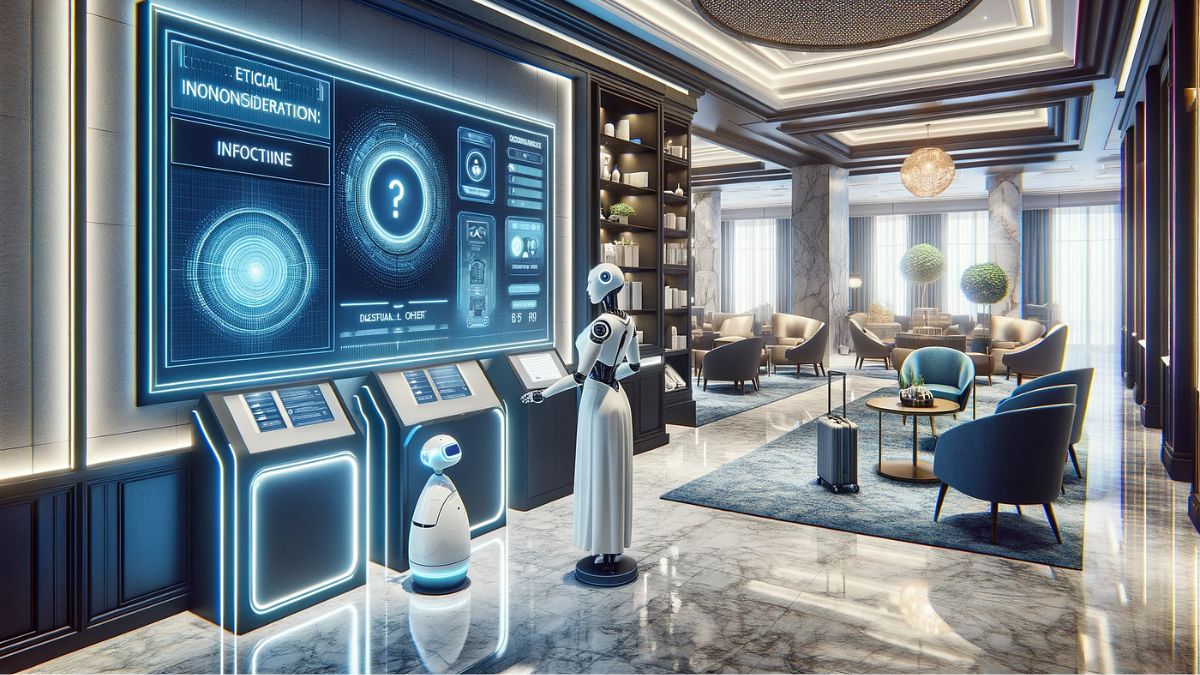Days where artificial intelligence (AI) is revolutionizing everything from healthcare to finance, the hospitality industry has embraced it as a game-changer for maximizing profit margins. But recent legal battles surrounding the use of AI-driven revenue management platforms, like Cendyn’s “Rainmaker” software, have sparked concerns about whether this technology is being used for innovation — or for something more insidious.
This week, a U.S. District Judge in New Jersey dealt a blow to consumers who claimed that hotel giants like Caesars Entertainment and MGM Resorts used AI technology to orchestrate a price-fixing scheme in Atlantic City. The judge, Karen Williams, dismissed the lawsuit with prejudice, ruling that there wasn’t enough evidence to substantiate claims that the hotels had colluded to inflate room rates. However, the broader implications of AI’s growing role in the hospitality industry may raise important questions that extend far beyond the courtroom.
AI’s “Invisible Hand” in Hospitality Pricing
For decades, pricing in the hotel industry has been driven by a combination of supply, demand, and competitive strategy. Hotels would manually adjust their room rates based on fluctuating market conditions, balancing factors like peak travel seasons, local events, and occupancy rates. But with the introduction of AI-powered platforms, such as Cendyn’s Rainmaker, the game has changed entirely.
Rainmaker uses advanced algorithms and real-time data including pricing and occupancy statistics from rival hotels to recommend optimal room rates. This technology promises to help hotel operators make data-driven decisions, maximizing revenue by adjusting prices based on complex market factors. What was once an art is now largely a science, powered by predictive analytics and machine learning.
However, this technological leap has also raised eyebrows, particularly among consumers who argue that AI may be used to artificially inflate prices. The dismissed lawsuits centered around the idea that hotels were no longer acting as independent competitors but instead were using AI as a “shared pricing brain” to coordinate room rates in a way that could be deemed price-fixing.
AI’s Battle Over Price Fixing
The class action lawsuit against major Atlantic City hotel operators, including Caesars and MGM, was part of a wave of legal challenges alleging that hotels are using AI platforms to tacitly agree on room pricing. Consumers claimed that Rainmaker was more than just a revenue management tool, it was an avenue for collusion.
Plaintiffs argued that hotel operators fed confidential pricing and occupancy data into the shared software platform, which then recommended rates based on the broader market, effectively standardizing prices across competing brands. The lawsuit described the AI software as “doing all the hard work” of setting prices, suggesting that hotels could artificially inflate room rates by relying on AI’s recommendations, instead of competing against each other.
But Judge Williams rejected these claims, writing that the plaintiffs failed to show how hotels used this allegedly sensitive information to fix prices. She emphasized that each hotel retained autonomy over its pricing, and there was no evidence to suggest they tacitly agreed to accept the AI’s recommendations. The ruling was clear: without explicit proof of collusion, the case was “factually and legally incomplete.”
The Ethics of AI in Pricing: Is It Manipulation or Optimization?
The dismissal of this lawsuit may have settled the legal question for now, but it has done little to address the ethical concerns over the use of AI in pricing. If AI platforms like Rainmaker optimize pricing by analyzing competitors’ data, does that inherently result in higher prices for consumers? And where is the line between innovation and manipulation?
Critics argue that AI algorithms can create a kind of “algorithmic tacit collusion,” where independent companies, without directly communicating, end up behaving as though they have agreed to set similar prices. The fear is that AI’s sheer efficiency and predictive capabilities allow it to mimic what, in human terms, would be considered illegal collusion — all while remaining within the boundaries of current legal definitions.
On the other hand, defenders of AI in pricing argue that these platforms are simply making businesses smarter and more efficient. The hospitality industry has long been competitive, and AI-driven tools are merely the next step in helping hotels stay ahead. By dynamically adjusting rates in real time, hotels can respond faster to market changes and avoid underpricing or overpricing their rooms.
A New Frontier for AI in Consumer Protection?
The case against Caesars, MGM, and Cendyn may have been dismissed, but the broader conversation about AI’s role in pricing is far from over. As AI becomes increasingly integrated into industries that impact everyday consumers, from hotel rooms to airline tickets, regulators may need to reassess how they view collusion in the age of AI.
Should there be stricter oversight on how AI systems operate? Could new laws or guidelines be implemented to ensure that consumers aren’t being unfairly priced out of markets through advanced technology? These are questions that consumer advocates and policymakers are now beginning to grapple with.
The hospitality industry, for its part, is likely to continue embracing AI as a way to stay competitive. The dismissal of these lawsuits may signal a victory for hotel operators, but it also serves as a wake-up call: the line between innovation and exploitation is razor-thin, and as AI continues to evolve, so too will the scrutiny over its impact on pricing and competition.


